Depression is a journey many people find themselves on at some point in their lives. It’s a winding path with ups and downs, but with the right treatment, it’s a path that can lead back to a brighter, more balanced place. One of the most common questions people have when they start this journey is, “How long does depression treatment last?” Let’s dive into this topic and explore the different factors that can influence the duration of depression treatment.
Understanding Depression
Before we talk about how long depression treatment takes, it’s important to understand what depression is. Depression is more than just feeling sad or having a bad day. It’s a serious mental health condition that affects how you feel, think, and handle daily activities. Symptoms can include persistent sadness, loss of interest in activities once enjoyed, changes in appetite, trouble sleeping or sleeping too much, lack of energy, and difficulty concentrating.
Types of Depression Treatment
There are several types of treatment for depression, and the duration can vary depending on which type you choose. The most common treatments include:
- Therapy: Various forms of psychotherapy, such as cognitive-behavioral therapy (CBT), are often used to treat depression.
- Medication: Antidepressants are commonly prescribed to help balance chemicals in the brain that affect mood and emotions.
- Lifestyle Changes: Exercise, diet, and sleep can all play a role in managing depression.
- Alternative Therapies: Treatments such as acupuncture, meditation, and herbal supplements can also be beneficial for some people.
Therapy: A Deep Dive
Psychotherapy, or talk therapy, is one of the most effective treatments for depression. The duration of therapy can vary widely based on several factors:
- Type of Therapy: Cognitive-behavioral therapy (CBT) is usually short-term, often lasting between 12 to 20 weeks. Other forms, like interpersonal therapy (IPT), may also be relatively short-term. In contrast, psychodynamic therapy, which explores past experiences and emotional trauma, can last for several months or even years.
- Severity of Depression: Mild to moderate depression may respond well to short-term therapy. However, more severe or chronic depression may require longer treatment.
- Individual Progress: Everyone is different, and the pace at which people progress in therapy can vary. Some might see improvements within a few weeks, while others may take several months.
Medication: The Long Haul
Antidepressant medications are another common treatment for depression. These medications can take some time to start working, usually between 4 to 6 weeks. Once the medication starts to take effect, doctors often recommend continuing the medication for at least 6 to 12 months, even if you start feeling better. This helps to prevent a relapse of depression.
- Starting Medication: Finding the right medication and dosage can be a trial-and-error process. It may take some time to find the one that works best with the fewest side effects.
- Maintenance: Once an effective medication is found, it’s typically continued for several months to ensure that symptoms are under control.
- Long-Term Use: Some people may need to stay on medication for an extended period, especially if they have recurrent depression or other underlying conditions.

Combining Treatments: A Balanced Approach
For many people, a combination of therapy and medication can be the most effective approach. This combination can sometimes shorten the duration of treatment compared to using just one method alone. For instance, therapy can provide immediate coping strategies and tools to manage depression, while medication can help stabilize mood in the longer term.
Lifestyle Changes: The Ongoing Journey
Lifestyle changes are a crucial part of managing depression and can be beneficial throughout treatment and beyond. Regular exercise, a healthy diet, and good sleep hygiene can significantly impact your mood and overall well-being. These changes are not just a short-term fix but a long-term commitment to maintaining mental health.
- Exercise: Regular physical activity has been shown to boost mood and improve overall mental health. Even a simple daily walk can make a difference.
- Diet: Eating a balanced diet rich in fruits, vegetables, lean proteins, and whole grains can support your mental health.
- Sleep: Establishing a regular sleep routine and ensuring you get enough rest is vital for managing depression.
Alternative Therapies: Exploring Other Options
Alternative therapies can also play a role in depression treatment. Practices like mindfulness meditation, yoga, acupuncture, and herbal supplements can complement traditional treatments. The duration and effectiveness of these therapies can vary, and it’s important to discuss them with a healthcare provider to ensure they are safe and appropriate for your situation.
Read more about “Why Is Trauma Therapy So Hard?” on our blog page today!
Factors Influencing Treatment Duration
Several factors can influence how long depression treatment lasts:
- Individual Differences: Each person’s experience with depression is unique, and what works for one person might not work for another. Factors like genetics, personal history, and life circumstances all play a role.
- Support System: Having a strong support system of friends, family, and mental health professionals can positively impact the duration and success of treatment.
- Consistency and Commitment: Regular attendance in therapy sessions, adherence to medication schedules, and commitment to lifestyle changes are crucial for effective treatment.
- Underlying Conditions: Co-occurring conditions such as anxiety, substance abuse, or chronic health issues can affect the duration and complexity of treatment.
Measuring Progress
One of the challenges in depression treatment is measuring progress. Improvements can sometimes be subtle and gradual. Keeping a journal of your mood, symptoms, and any changes in your daily life can help track your progress over time. Regular check-ins with your therapist or doctor can also provide valuable insights into how well your treatment is working and whether any adjustments are needed.
When to Seek Help
If you or someone you know is struggling with depression, it’s important to seek help as soon as possible. The earlier you start treatment, the sooner you can begin to feel better. Depression is a serious condition, but it’s also treatable, and there are many resources available to support you on your journey to recovery.

Conclusion: A Path to Hope
So, how long does depression treatment last? The answer is it depends. The duration of treatment can vary based on the type of treatment, the severity of the depression, individual progress, and many other factors. What’s most important is finding a treatment plan that works for you and sticking with it. Recovery from depression is a journey, and while it may take time, it’s a journey worth taking. With the right support and resources, you can find your way back to a place of hope, balance, and well-being. Remember, you are not alone, and help is available.
Final Thoughts
If you’re currently undergoing depression treatment or considering starting, it’s natural to wonder how long it will take. While there’s no one-size-fits-all answer, understanding the various factors that influence treatment duration can help set realistic expectations and encourage patience. Healing takes time, but with perseverance and support, brighter days are ahead. Curious about the duration of depression treatment? At Elysian Psychological Services, our compassionate professionals tailor personalized plans to help you on your path to recovery. Start your journey to better mental health today. Reach out now and take the first step towards a brighter, more balanced future. Your well-being is our priority—let’s work together for a happier tomorrow.


